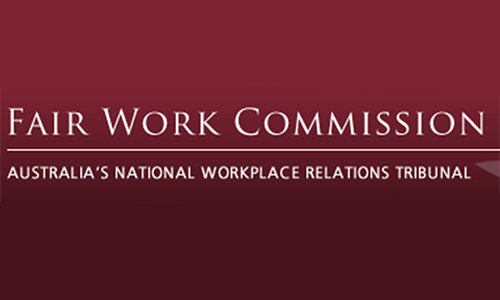The Fair Work Commission, in finding that an employer constructively dismissed a female employee when it unreasonably refused her request to work part-time after the birth of her second child, has emphasised that women have the right to “give birth to children without foreclosing their employment.” Hanina Rind –v- Australian Institute of Superannuation Trustees [2013] FWC 3144 (31 May 2013)

Commissioner Lewin said that while “rights to parental leave may be of recent origin in the long history of employment in Australia the right in this case is no small thing.”
The Commissioner found that the “practical necessity” of the former database/IT systems administrator not having her request to work part time unreasonably refused was “essential for her continued employment to be viable“. he said, “Indeed, the importance of parental leave and in particular leave in relation to maternity has become a matter of vital public interest in various ways reflected in the Act and in the Award system.”
He said the seriousness of the employer’s conduct in refusing the employee’s request “should be viewed from the contemporary vantage point, which affords considerable importance to the ability of women to give birth to children without foreclosing their employment due to the consequences of family formation“.
The employee began work with the Australian Institute of Superannuation Trustees in August 2009, initially full-time. In February 2010, to accommodate her family responsibilities after the birth of her first child, she and the Institute agreed that she could work from home one (1) day a week. In late 2012, the employee contacted the Institute to discuss her return from six (6) weeks paid parental leave and a period of unpaid parental leave after the birth of her second child.
The Australian Institute of Superannuation Trustees Certified Agreement 2009, which covered the employee’s terms and conditions of employment, provided a right to request to work part-time until a child reached school age, with any refusal of such a request to be made on objective business grounds.
After receiving a letter in early October 2012 requesting that she return to full-time work from 21 January 2013, the employee requested that she be able to work three (3) days per week, because of her parental responsibilities. The Institute rejected the request, saying that the role required a “dedicated full time on site resource“, with a part-time off-site arrangement trialled in her absence leading to “frustrations“.
Commissioner Lewin said the Institute made several attempts to convince the employee to return to work, but proposals offered were either “equalling attendance of five days of the week or otherwise conditional in nature“. “In my view, the conditional nature of this agreement in the factual circumstances of the case can be considered as a refusal” of her proposed request to work part time,” he said.
In terms of the legal principles relating to a constructive dismissal, the Commissioner said that an employee is “entitled to leave their employment in circumstances where conduct of their employer is sufficiently inimical to the continuation of the contract of employment and the employment relationship“.
Commissioner Lewin said “inimical conduct” included behaviour “which is adverse, unfriendly or hostile to the contract of employment and the employment relationship“. He said the Institute’s argument that it had not constructively dismissed the employee had further been undermined by the fact that it had made no attempt since January 2013 to employ another full-time administrator, continuing instead with the part-time off-site provider used during the former employee’s parental leave.





